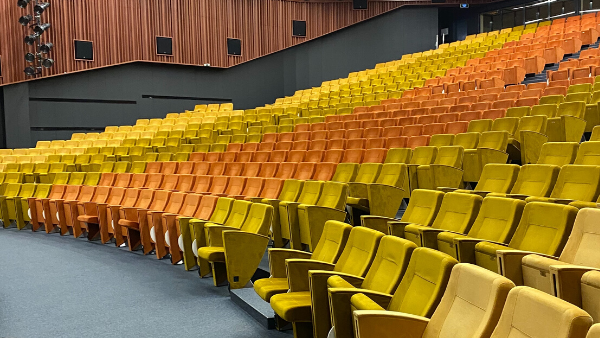The global lockdowns imposed following the COVID-19 pandemic have had profound effects on the economy and society. Never before have we seen the widespread closure of businesses, schools and universities in an effort to protect healthcare services from being overwhelmed.
Clearly the world was unprepared. But it has been a testament to mankind that we have adapted, with new field hospitals being developed within days, new research being published within weeks of the appearance of the disease, and new treatments being developed at breakneck speed. Similarly, education has had to rapidly evolve.
With respect to the latter point, this blog will evaluate the changes that have happened and how distance learning has become the answer to delivering education during the lockdown. While it’s difficult to predict the future, this blog will discuss how it will become the dominant force in educational delivery in healthcare in the future.
While the meta-analysis of the US Dept of Education revealed as far back as 2014 that distance learning was more effective than campus based courses, numerous medical societies and representative bodies throughout the world fail to recognise online courses. For example, the Medical Council of India does not recognise online medical training (1).
In the wake of the pandemic, where campus based university training has had to close, such a view can be considered obsolete. Indeed, the Times Higher Education went so far as to suggest that the closures enforced by the pandemic have brought the future of learning firmly into the present, despite the previous misgivings of many Vice Chancellors (2).
So, the question that must be asked is: Why does medical education lend itself so well to online learning?
‘Force Majeure’

The forced closure of educational institutions has meant that universities have been forced – in some instances kicking and screaming – to swiftly adopt online learning. These so called ‘acts of god’ or ‘force majeure’ illustrate the vulnerabilities of residential learning but also the real strength of learning in an online environment.
Universities have been unprepared for the rapid shift to an online environment and, consequently, have lost a lot of students – one article has suggested losing 80-90% of their foreign students (3). In contrast, we at Diploma MSc have been delivering purely online postgraduate healthcare courses for over a decade, and our withdrawal rate of healthcare workers has been 8% after module 1, despite many needing to change to shift work in the pandemic.
Cost

Education is expensive but this expense should be regarded as a self-investment which will pay future dividends. Why put your hard earned cash in the hands of brokers who make money even when you lose it on stocks and trades?
There is only one person that values your hard earned cash – you. So invest in yourself in the knowledge that putting that money into your education will pay dividends (see an earlier blog which expands on this).
However, it does not mean that you should be a spendthrift. Across disciplines, online learning is more affordable than residential courses (4). As an example of this, our Diploma MSc programmes are at least half the price of campus-based projects. Moreover, many universities levy an international student fee that is double that of a EU/UK student. This is illogical in an online environment, so choose an online course where prices are identical irrespective of your country of origin.
There is another saying: “time is money”. This is also particularly true in postgraduate education. We have all been through undergraduate courses where we have three months off in the summer, two months over Christmas and a month or so at Easter. Why have so many breaks? Increasingly, online courses cater to the demands of the student and condenses courses into more time and cost efficient programmes.
So, some universities are waking up to the fact that you can do an undergraduate degree in two years rather than 3 just by being more efficient with the semester breaks (5). Consequently, why do a Postgraduate Diploma in two years when it can be achieved in one?
The global expert faculty

We all recognise experts in our specialty whose knowledge of the literature is matched by an outstanding publication record. How good would it be to be taught by these people? This is the advantage of your virtual faculty that a campus cannot in any way match.
As an example of this, our online courses bring together a faculty of tutors from across the globe that teach on the modules simultaneously. They bring their experiences of dealing with their specialty in relation to their country and in the context of the international environment.
This kind of faculty can only exist in the online environment and is seldom discussed by red brick universities who have their own faculty but are unable to draw upon a spectrum of experts from across the globe.
Not all online courses are equal
As a postgraduate healthcare professional, learning needs to be delivered around one’s work. But not all online courses are the same. As a consequence of the pandemic, many university courses have just put their lectures online and corresponded with their students via email or video calls.
That’s not doing justice to what established online courses can do nor does it offer the convenience of asynchronous learning that facilitates the same educational environments for a student in London as that of the student in Australia. They have persisted with the old model without incorporating the technology that can assist learning.
For example, unlike a classroom, technologies used in online courses, can quickly identify students who are struggling with certain aspects of a course, activities and interactivity of tutors and students in discussion together with algorithms that help identify levels and so feed material to maximise development.
So when you choose an online course do look for the pedigree of the course and the incorporation of technology that can help you learn.
The environmental argument

If, like some societies, you are not persuaded by the advantages of convenience, cost and flexibility of online learning, then maybe consider the environmental argument. Online learning is so much more environmentally friendly than campus learning. There is no CO2-generating travel to a red brick university that also consumes vast amounts of energy. Your travel to your aluminium and silicon campus (your laptop) is actually green.
Again, not all online courses are the same. Some distance learning courses also require a few days of residential study. We estimate that a one-day residential course for international students would produce 3.1 tonnes of CO2 per student more than a truly online course. One should not discount the environmental argument for selecting the right postgraduate course.
We are currently witnessing a revolution in higher educational delivery. The pandemic has forced higher education to embrace online learning as the solution to campus closures. There is no turning back from this and hopefully representative medical societies will recognise the advantages of online education.
However, it is also important to appreciate that online learning is not a complete answer to healthcare education and business education. As yet it cannot replace practical procedures and clinical examinations, but that too might change as technology evolves to facilitate remote examinations and practical procedures.
Similarly, not all online courses are the same. Some universities have just taken their campus programme and put these lectures and powerpoint slides online. That devalues what online education is really about.
So caveat emptor, investigate the online course that offers you the best in online learning theory, has the appropriate pedigree, experienced tutors familiar with the requirements of distance learning and is right for your ongoing job.
References:
- https://health.economictimes.indiatimes.com/news/hospitals/online-medical-education-gaining-momentum-in-india/59738564
- https://www.timeshighereducation.com/features/will-coronavirus-make-online-education-go-viral
- https://www.theguardian.com/education/2020/apr/11/universities-brace-for-huge-losses-as-foreign-students-drop-out
- https://www.oxfordcollege.ac/news/the-cost-of-online-education/
- https://www.studyin-uk.com/study-options/two-year-degree/
- https://hbr.org/2020/03/what-the-shift-to-virtual-learning-could-mean-for-the-future-of-higher-ed
